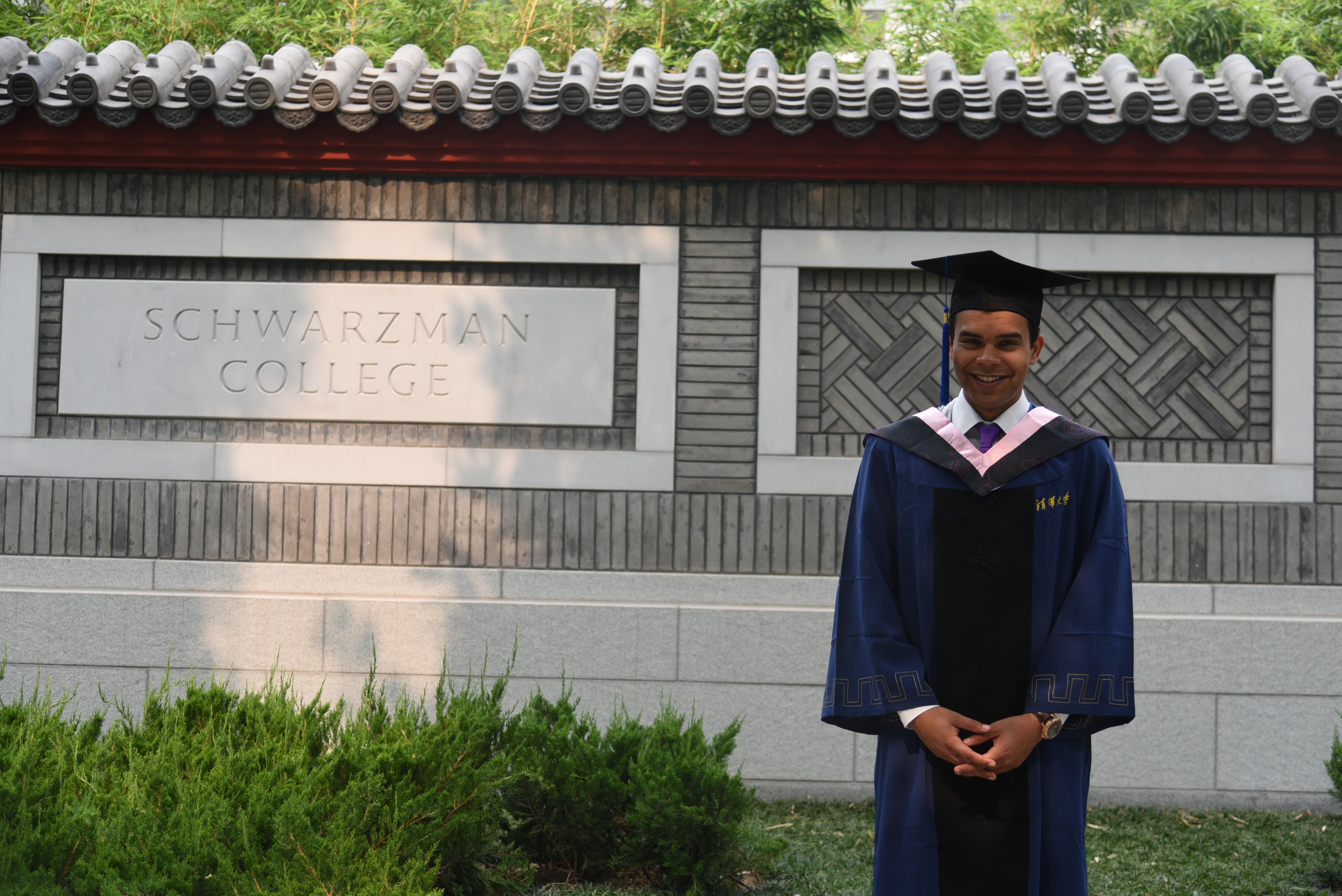
An in-depth interview with Kyle Hutzler, Yale ’14 and Schwarzman Scholar Class of 2017.
By Marina Yoshimura
[divider]
[dropcap]K[/dropcap]yle Hutzler’14 graduated from the Schwarzman Scholars Program in 2017. Before he joined Schwarzman College in Beijing, China, Kyle had been involved with the editor of China Hands Magazine and had spent a semester at the East Normal China University.
Kyle was most recently a Senior Associate at McKinsey & Company, and has prior working experience in Latin America, Africa, and Washington. His blog can be found here: chinabooks.review.
[divider]
Q: How has your internship at the United States International Trade Commission helped you learn about China-US relations?
A: Working at the Trade Commission was how I first became exposed to China. I was instantly hooked by China’s complexity and enormity and came to appreciate how important it would be for the US to have more people who had a deep understanding of the country.
Q: How did working at McKinsey & Company affect your experience at Schwarzman College?
A: The cohort was balanced between those with work experience and those who had just graduated, which made for a good dynamic because we were all learning from each other. I think my time at McKinsey helped me see issues from a more practical as opposed to solely academic perspective. It also helped me appreciate how hard reform – whether it is a company or a country – really is to achieve.
Q: How did your editing the China Hands magazine help you to understand China?
A: China Hands is one of my favorite memories from Yale – I met so many people that are still close friends. Prior to coming to Schwarzman College, it was the most international group I interacted with – so it taught me a lot not just about China but about teamwork and communication too.
Q: How is your education at Yale similar to or different from your education at Schwarzman College?
A: They are really incomparable experiences with the exception that success at both places requires you to have a strong sense of self-motivation. There were times at Schwarzman College where I would miss certain things about Yale, and at others when I wished that I had been more exposed to some of the things I was experiencing at Schwarzman College. An example of the latter is the close interaction for the first time in my life with personnel from the US military.
Q: Did your view of China change after living there as a Schwarzman Scholar, or did it confirm your initial impression or idea of the country?
A: Among the international scholars, I had a somewhat higher degree of prior exposure, but I was still surprised at how much had changed since I first visited the country as a junior at Yale in 2012, especially the tech scene. All said, China has significant challenges related to its economic and demographic transitions and the past year there made that real for me.
Q: What does international affairs mean to you?
A: International affairs isn’t just government-to-government. It’s business, it’s NGOs, it’s fundamentally people reaching across borders to understand each other and create a world that is more peaceful and prosperous.
Q: How important is the US-China Alliance? Does China need the United States, and vice versa?
A: I think most people would question the word choice of “alliance” but the relationship is critical to both countries. It’s not so much a question of who needs who more as it is can both countries trust each other enough to act as partners. Both countries are struggling to accept that neither can go it alone.
Q: According to the Foreign Affairs magazine, “It has become one of the most obvious clichés in international politics: the United States and China have the most important bilateral relationship in the world.” Do you agree? Why or why not?
A: The relationship is undoubtedly important, but we can’t reduce US foreign policy to just the bilateral relationship. China needs to be fully integrated into the global system, otherwise a “G2 world” will lead to competition for a “G1 world.” China’s rise requires the US to strengthen our relationships throughout the world, something that I think the current administration neglects in its posture towards agreements like NATO and trade.
Q: How do you see or would like to see US-China relations in years to come?
A: Much depends on the domestic situations in both countries as well as how aggressive China chooses to be in its neighborhood. The US has more to gain from a strong, prosperous China than we do a weak one and there are many constructive areas where both countries could better collaborate. We need leaders on both sides who are willing to stand up for working together.
Q: Please leave a message for Yalies who are interested in the Schwarzman Scholars pro gram.
A: Yale has an amazing history in China and the Schwarzman Scholars program is an indirect continuation of that. Those who go need to be energized by the fact that this is still early days for the program – it needs scholars who are willing to be constructive in helping the program reach its full potential. I think Yalies are uniquely placed to do that.
[hr]
Marina Yoshimura is a visiting student from Japan. You can contact her at marina.yoshimura